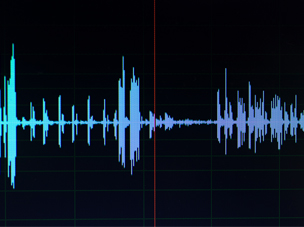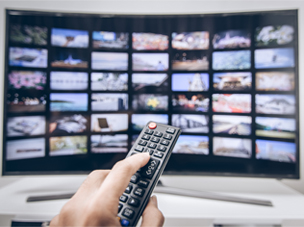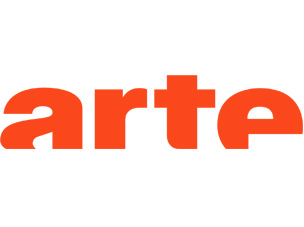32,000 European artists signed a petition, artists spoke out all over Europe and yet MEPs rejected early July the negotiating mandate of the Copyright Directive...
...despite the successful passing of the directive in the Legal Affairs Committee with a comfortable majority of 15 votes to 10.
The MEP’s decision is the product of a violent GAFA campaign that manipulated the opinion of a large number of MEPs, disregarding the work done by their colleagues in the Legal Affairs Committee.

Internet giants have deceived consumers, European citizens and the majority of the European Plenary assembly by misrepresenting a campaign based on real economic and remuneration issues as a threat to freedom of expression, a deceitful campaign designed to mask their true intention - to preserve their advertising revenues.
We live in a world where there are rules to protect the weak in relation to the strong. The Internet is part of our lives and must be regulated. Without appropriate regulation, the will of the Internet giants will be imposed unsparingly on the artists.
This is just a postponement as MEPs will submit amendments to the text in September. Artists must remain mobilised so this text does not lose sight of its primary objective: to rebalance the contractual relationship between creators and online platforms, encouraging the sharing of works on the Internet while ensuring fair remuneration for creators.
Several leading French songwriters wrote an opinion column, published in Le Monde on 5 July this year, entitled:
‘If we cannot make a living from our music, our work,
we creative artists are doomed to disappear
and this is nothing but censorship!’
Artistic creativity should not give rise to antagonism. Quite the opposite – it is a symbol of unity, a reflection of the dreams, emotions, aspirations and opportunities of every citizen.
As artists, we are absolutely shocked to see that the proposed legislation on digital copyright in the European single market - which covers increased protection for creative artists on the internet - has become the subject of this disinformation campaign, solely to the advantage of the major digital operators.
Their campaign is attempting to spread the view that this legislation would endanger the exercise of fundamental freedoms on the internet.
Clearly, this is not the case. The purpose of the new directive is not to impose filtering or any kind of censorship on the internet, but rather to make it easier to identify the works being used on digital platforms and to pay their creators.
These days, these powerful, digital companies are broadcasters, like all the others, essential partners, like all the others and, as such, must act responsibly, like all the others.
Defining a legal framework to find a better balance between creators and digital operators is not a threat to freedom – far from it. We are relatively small scale, whereas they are giants! Regulation restricts neither innovation nor freedom, but is necessary to ensure that businesses behave in a correct manner.
Stigmatising intellectual property rights and characterizing them as the privilege of a few who want to stifle freedom of expression, actually serves the economic interests only of the major players, GAFA. As creative artists, we are simply asking for a balance to be struck between these freedoms which, if - as they should be - are recognised as fundamental, are perfectly reconcilable.
Any backward step in the fight for fair remuneration for creators and artists, on the issues of value sharing - because what we create has value - will have a direct and harmful impact on the millions of creative artists who, in France, in Europe and on every continent, share the same dream; to be able to make an independent living from their work.
Our fight is forward looking: in our increasingly regularised world it opens the way for the future generations of artists who will delight our senses and stir our emotions with their work.
It is important to remember that being an artist is a job. Creative artists have an essential place in our society and protecting them is part of what allows democracy to function properly.
Abd Al Malik, Fabrice Aboulker, Rost, Gilles Amado, Elisabeth Anais, Keren Ann, Wally Badarou, Archimede, Blick Bassi, Richard Bona, Admiral T, Barbara Carlotti, Maxime Catteloin, Jean-Noël Chaleat, Jérôme Commandeur, Bruno Coulais, Da Silva, Gérard Davoust, Jacob Desvarieux (Kassav'), Julien Doré, Doriand, Richard Dubugnon,Yves Duteil, Noëlle Duteil, Thomas Dutronc, Cyrille Eldin, Jean Fauque, Feu! Chatterton, Michel Fugain, Nicolas Galibert, Nicolas Godin, Jain, Joachim Garraud, Jean-Jacques Goldman, La Grande Sophie, Matthieu Gonet, Françoise Hardy, IAM, Manu Katche, Arlette Kotchounian, Barcella, Feloche, Alain Chamfort, Blankass, Ibeyi, Maxime Leforestier, Patrick Lemaitre, Claude Lemesle, Christine Lidon, Francis Lockwood, Emily Loizeau, Bruno Mantovani, Imany, Caroline Molko, Jean-Marie Moreau, Cyril Morin, Dominique Pankratoff, Etienne Perruchon, Laurent Petitgirard, Oxmo Puccino, Renaud, Fred Rister, Marion Sarraut, Jean-Marie Salhani, David Sechan, Valérie Seiller-Billaud, Eric Serra, Alan Stivell, Arlette Tabart, Béatrice Thiriet, Paul Van Parys, Jean-Claude Vannier, Gast Waltzing.
Published July 11 2018


